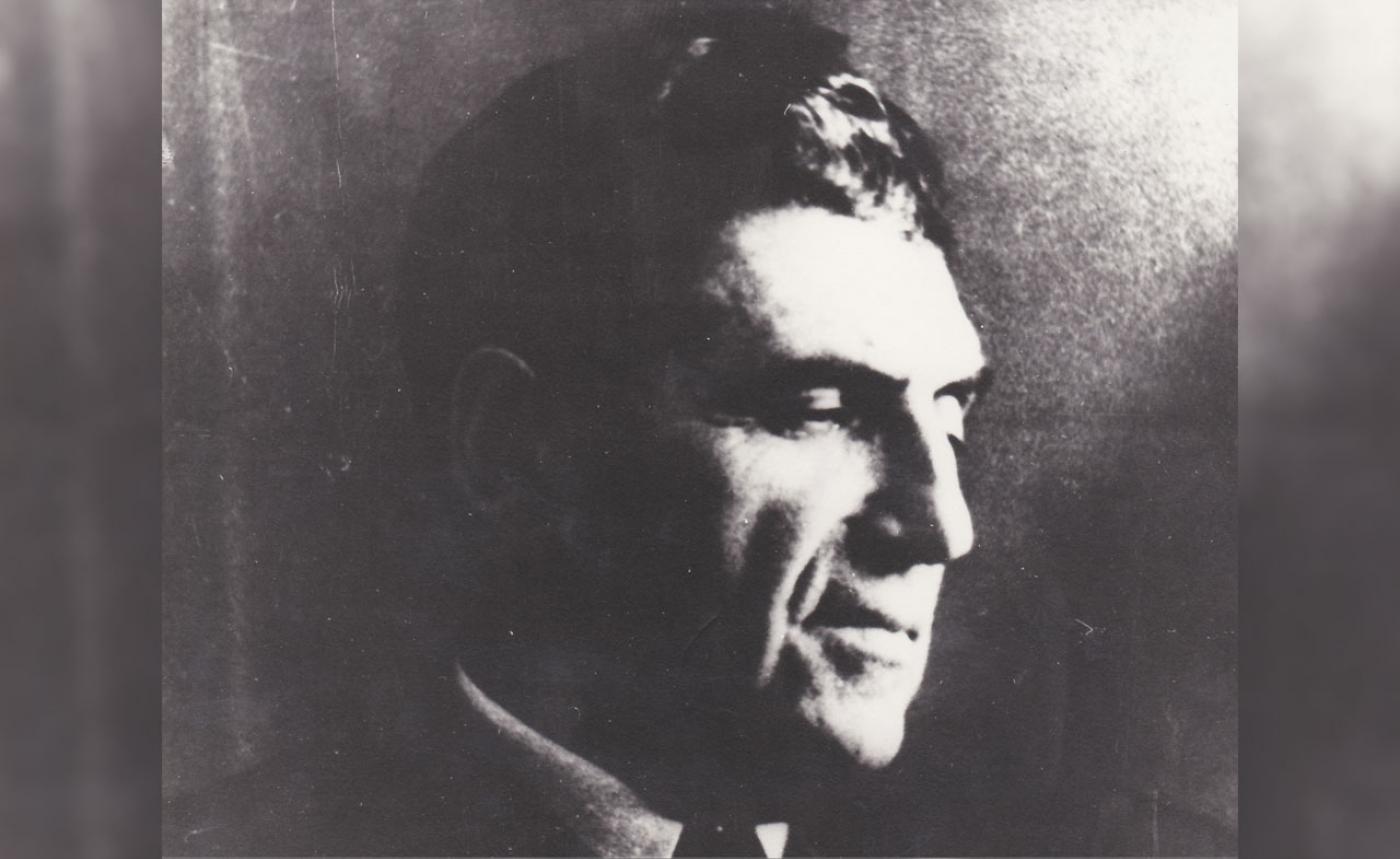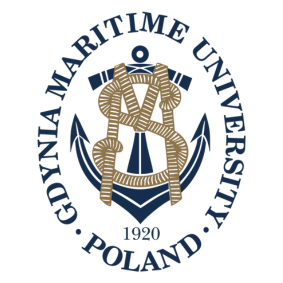Captain Karol Olgierd Borchardt

Karol Olgierd Borchardt, Master Mariner
Principal of the Maritime Secondary School in Landywood-Lilford, 1945-1946
From Moscow to Paris to Vilnius
Born on 25th March 1905, in Moscow. In 1906, he left Moscow for Paris with his mother. When the time came to send her son to school, his mother decided to return to Poland, to Vilnius, to raise him in a spirit of patriotism. In Vilnius, he first attended a Russian secondary school before moving to a Polish Teaching Association high school.
During the Polish-Bolshevik war, the young scout Borchardt volunteered to take part in the defence of Vilnius. He passed his secondary school matura in 1924 at the Adam Mickiewicz State Secondary School, where one of the teachers, Principal Bronisław Zapaśnik, who never punished his students for their offences, influenced the way he would later treat his own students. A similar method was used by Borchardt with his students at the school in Landywood-Lilford, many of whom had gone through difficult life experiences.
Admission to The Maritime School in Tczew
At first, he was going to study in the French maritime school, but after a meeting with some friends of his stepfather, Engineer Witold Komocki and his wife, he changed his mind and, in 1924, applied to the Maritime School in Tczew. However, he was not admitted for medical reasons. After studying for a year in the Faculty of law at Stefan Batory University in Vilnius, he resigned to further pursue his dream of taking to the sea and once again applied for admission to the School in Tczew. This time around he passed the medical examination and joined the Faculty of Navigation, in which he was a student from 1925 to 1928. He undertook practical seamanship training on Lwów, under the command of Captain Mamert Stankiewicz.
After completing his training, he was received a call up to attend a reserve officer course at the Navy Cadet School in Toruń, however, he was soon forced to resign because of the recurrence of an injury sustained during the war.
Borchardt the Mariner
In 1929-1931, Karol Olgierd Borchardt sailed as an able seaman onboard the s.s. Rewa, and later during the years 1931- 1935 and as a deck officer on the s.s. Pułaski, the s.s. Polonia and the m.s. Piłsudski.
In 1936, he qualified as a master mariner. He signed on to the s.s Kościuszko, which sailed the route to South America under the command of Captain Edward Pacewicz. From 1938, he was the senior officer on the Dar Pomorza, on which he set out for the Caribbean Sea on a voyage in the "footsteps of Captain Blood".
WWII
Following the outbreak of the Second World War, he departed Sweden for Scotland on the Robur IV. In November 1939, he jumped ship and became the 1st officer on Piłsudski, commanded by Captain Mamert Stankiewicz. One month later, on 26th November, the ship was torpedoed (or hit a mine). Borchardt was injured and hospitalised.
In May 1940, as 1st officer on the m.s. Chrobry, commanded by Master Mariner Zygmunt Deyczakowski, he survived the bombardment of the ship. Despite being injured, he acted heroically, saving the crew and troops that were being transported onboard. In 1942, he was honoured with the Cross of Valour. During his recovery in Scottish hospitals, he wrote and painted.
His state of health, however, prevented him from returning to sea, and so he took to organising Polish maritime education in Great Britain. There he taught on officer training courses as an instructor and lecturer, a lecturer on courses for captaincy, and was also the director of 1st and 2nd class training courses for skippers. Whilst in Great Britain, he was responsible for the organisation of the Maritime Secondary School in Landywood-Lilford. The School educated the youth of Polish refugee camps from countries such as Palestine, India, Egypt, and Kenya. He held the position of School principal for more than a year.
He remained in Great Britain for a few years after WWII, initially supported by the state, until in 1948 he began work as a Second-Class Officer for English Ship Operator Lamport & Holt Line.
Return to Poland
In October 1949, largely out of concern for his mother's ill health, he returned to Poland and began work as a 1st Class Officer on the m.s. Batory. The political situation at the time prevented him from finding stable employment; he was not granted the right to work at sea until 1956. He occasionally found work as a course lecturer. Thanks to the help of captains Tadeusz Meissner, Stefan Gorazdowski and Józef Bąbczyński, he was finally employed at the State Centre for Maritime Education in Gdynia, and also gave lectures at the State Maritime School in Gdynia. When the State Centre for Maritime Education was closed in 1951, he taught subjects such as navigation and astronavigation, from 1954 at the Sea Fishing Technical College, and until 1968 at the State School of Sea Fishing.
Following the merge of the State School of Sea Fishing and the State Maritime School, he was employed within the latter's Faculty of Navigation. In 1970, he officially retired but continued to lecture full time at the Maritime Higher School in Gdynia until 1974. During the summer holidays, he captained ships built in the Gdansk shipyard during technical testing.
Man of Many Talents
During his professional career, Karol Olgierd Borchardt had many different roles, he was a delegate of the Ministry of Sailing in the Maritime Court in Gdynia, an oceanography consultant for the Polish Academy of Sciences, worked on projects for the Linguistic Normalization Committee, and devised programmes of study for maritime education institutes. Additionally, he also worked as a consultant and reviewer of textbooks and authored textbooks on astronavigation.
Captain Borchardt was a man of many talents and interests; he wrote, sketched, painted, and painted. His maritime-themed short stories were first published on the pages of magazines, such as Morze. In 1960, a collection of his tales was printed under the title Knaczy Kapitan (later translated into English as “I Mean, Said the Sea Captain”).
Shortly before his death, another book was released entitled Szaman Morski [Sea szaman] and containing humorous accounts of key figures in Polish maritime history, was released. He also had plans to publish a third book entitled Trzecia flota [The third float], on the topic of sea fishing. However, this was prevented by his death. Borchardt’s literary legacy was curated by publisher Ewa Ostrowska. The previously unpublished stories were published posthumously in Pod czerwoną rózą [Under a red rose] and Kolebka nawigatorów [Cradle of navigators].
Decorations
Karola Olgierda Borchardta’s most important decorations include The Cross of Valour (twice), a Medal for Services in the Defence of the Country, a 1st Class Order of the Banner of Work decoration, and a National Education Commission Medal.
He died on 20th May 1986 and was buried at the Witomino Cemetery in Gdynia. Named after him is a schooner, the s.t.s. Captain Borchardt, several primary schools in Gdynia, Gdansk, Strzebielin, and Rumia, as well as streets in Gdynia and Tczew, and the library at Gdynia Maritime University.

